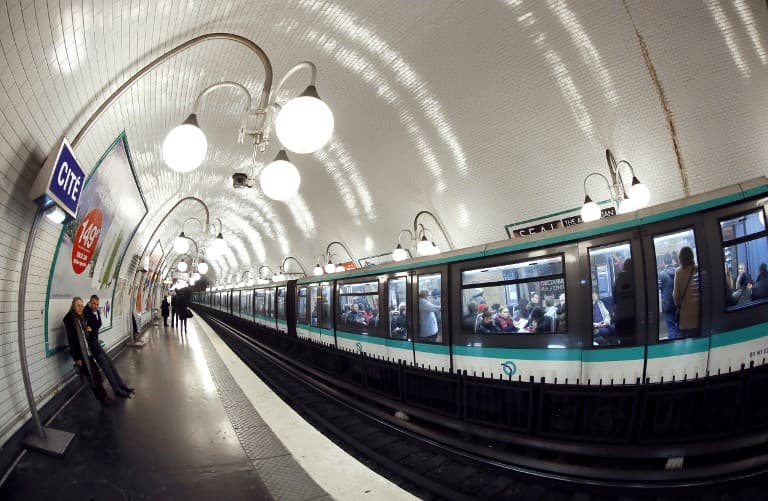Paris Metro air 'up to 30 times more polluted' than city's streets

Paris regularly suffers from severe air pollution, but a new study says that the air in the city’s century-old Metro network is up to 30 times more polluted than in the streets.
The Metro station that came out worst in the study was La Défense in the business district, where the air on the platforms of the busy transport hub was found to be 30 times higher in fine-particle matter than the air outside.
Le Parisien newspaper commissioned the study that was carried out on March 7th - a day on which the air in the city was deemed relatively free from pollution - and has now published its disturbing results.
It noted that pollution in many Metro stations were much lower than the shocking heights reached at La Défense, in particular most of those along Line 1, where the rolling stock is relatively new.
READ ALSO: Pollution spike prompts car ban in Paris and speed limit cut around France
But many had frighteningly high levels, said the study, which noted that the Paris transport authority RATP itself admitted to levels of 200 µg/m3 at Chatelet, Europe’s biggest underground metro/commuter train station.
Fine-particles such as "PM2.5 particles", which are particulate matter measuring 2.5 microgrammes or less, are known to produce respiratory and cardiovascular illness.
The warning threshold is of 50 μg/m3, while the annual average is 15 µg/m3 in Paris, where authorities regularly ban the most polluting vehicles from the city’s streets due to spikes in air pollution.

Paris suffers from frequent spikes in air pollution. Photo: AFP
There are various reasons for the dirty air in the metro system. Fine particles are produced by trains' brakes, while ageing rolling stock also leaves pollution on the platforms, and many street level air vents are sucking in air from vehicles’ exhaust pipes.
Commuters and tourists using the trains for an hour or two a day are exposed to the health risks, but the situation is far more dramatic for many RATP workers who can spend at least six and a half hours a day below ground.
“(RATP) employees are very worried,” Bastien Berthier, of the l’Unsa-RATP trade union, told Le Parisien.
Comments
See Also
The Metro station that came out worst in the study was La Défense in the business district, where the air on the platforms of the busy transport hub was found to be 30 times higher in fine-particle matter than the air outside.
Le Parisien newspaper commissioned the study that was carried out on March 7th - a day on which the air in the city was deemed relatively free from pollution - and has now published its disturbing results.
It noted that pollution in many Metro stations were much lower than the shocking heights reached at La Défense, in particular most of those along Line 1, where the rolling stock is relatively new.
READ ALSO: Pollution spike prompts car ban in Paris and speed limit cut around France
But many had frighteningly high levels, said the study, which noted that the Paris transport authority RATP itself admitted to levels of 200 µg/m3 at Chatelet, Europe’s biggest underground metro/commuter train station.
Fine-particles such as "PM2.5 particles", which are particulate matter measuring 2.5 microgrammes or less, are known to produce respiratory and cardiovascular illness.
The warning threshold is of 50 μg/m3, while the annual average is 15 µg/m3 in Paris, where authorities regularly ban the most polluting vehicles from the city’s streets due to spikes in air pollution.

Paris suffers from frequent spikes in air pollution. Photo: AFP
There are various reasons for the dirty air in the metro system. Fine particles are produced by trains' brakes, while ageing rolling stock also leaves pollution on the platforms, and many street level air vents are sucking in air from vehicles’ exhaust pipes.
Commuters and tourists using the trains for an hour or two a day are exposed to the health risks, but the situation is far more dramatic for many RATP workers who can spend at least six and a half hours a day below ground.
“(RATP) employees are very worried,” Bastien Berthier, of the l’Unsa-RATP trade union, told Le Parisien.
Join the conversation in our comments section below. Share your own views and experience and if you have a question or suggestion for our journalists then email us at [email protected].
Please keep comments civil, constructive and on topic – and make sure to read our terms of use before getting involved.
Please log in here to leave a comment.